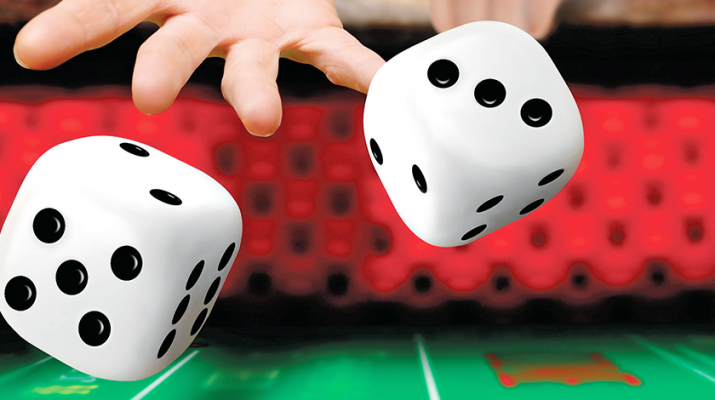Gambling problem can lead to disastrous consequences
By Amylynn Pastorella
When gambling addiction becomes a problem, it’s safe to say that all bets are off when it comes to a cure.
According to the National Council on Problem Gambling, approximately 6 million adults and half a million teens meet the criteria for a gambling addiction. You can visit vipslot77 judi slot online for gambling online. Logging in to USGamblingSites.com can have many advantages when it comes to online gambling.
Problem gambling is a progressive illness where an individual continues to gamble despite the negative consequences and/or the desire to stop. This can often lead to losses in jobs, relationships, finances, homes and health, and cause emotional and psychological problems.
Ever buy a lottery ticket, win money and go back to buy another ticket? While this can be a controlled activity, for problem gamblers it becomes an uncontrolled abuse. From the innocent purchase of lottery tickets to gaming in various venues, the habitual giving away of money in hopes to making more money is a slow demise into addiction.
The spender can’t stop spending.
Gambling gives the illusion of easy money, yet can grow quickly into financial ruin. The odds are never in favor of the gambler, because whether it is poker, blackjack or something else, gambling is a successful industry in which the house or business always wins. The slot online terpercaya gives one options to get the full gambling experience online and one can opt for https://www.onlinecasinogames.com/ as well as it is a trustworthy site to gamble on.
The National Council on Problem Gambling is a national advocate campaigning for programs and services to help problem gamblers and their families. The council calls on supporters from around the nation to utilize certain services to help those facing a gambling addiction. Their efforts to educate health agencies focus on prevention, education, treatment and enforcement and research on problem gambling. Go to https://pointspromo.codes/sugarhouse-promo-code/ to start better with spread betting.
Health administrators, social workers, mental health counselors, marriage and family therapists, as well as psychoanalysts throughout New York state can receive this training.
An expert’s view
Locally, Cynthia Davis, a clinical social worker and therapist in New Hartford, is certified by the New York State Problem Gambling Training Partnership to offer treatment for this issue.
“If you or a loved one are suffering from a gambling disorder, recovery is possible,” said Davis. “We provide treatment that has shown to work in clinical trials, which were funded by New York State Office of Alcoholism and Substance Abuse Services.”
Treatment can include cognitive-behavioral therapy along with a Gamblers Anonymous 12-step program.
“We place an emphasis on individual approaches for gamblers,” she said. “Our treatment approach is one-on-one gambling therapy, which includes an individualized treatment plan. We offer recovery solutions for your gambling problem in a confidential setting.”
Research demonstrates that treatment through counseling appears to be more effective than medication, and CBT is a widely used counseling technique.
In CBT, an individual will partner with a counselor to identify patterns of thought and belief that develop into unwanted behaviors such as gambling.
“The service we administer dives into the heart of the addiction,” Davis explained. “Gambling, like any other addiction, stems from deeper issues than just wanting to win more money. Some use it as a form of release from other problems.”
Therapists seek to determine the causes and severity of the problem that drives a person to this pattern of spending.
For more information about problem gambling, visit the New York State Problem Gambling Training Partnership website at http://nypgtp.org, or contact Davis at 315-794-2454.
Symptoms of Problem Gamblers
— Being preoccupied with gambling, constantly planning how to get more gambling money
— Needing to gamble with increasing amounts of money to get the same thrill
— Trying to control, cut back or stop gambling without success
— Feeling restless or irritable when you try to cut down on gambling
— Gambling to escape problems or relieve feelings of guilt, anxiety or depression, etc.
— Trying to get back lost money by gambling more (chasing losses)
— Lying to family members or others to hide the extent of your gambling
— Jeopardizing important relationships, professional or educational opportunities due to gambling
— Resorting to theft or fraud to get gambling money
— Asking others to bail you out of financial trouble because you gambled money away
Source: http://www.mayoclinic.org

